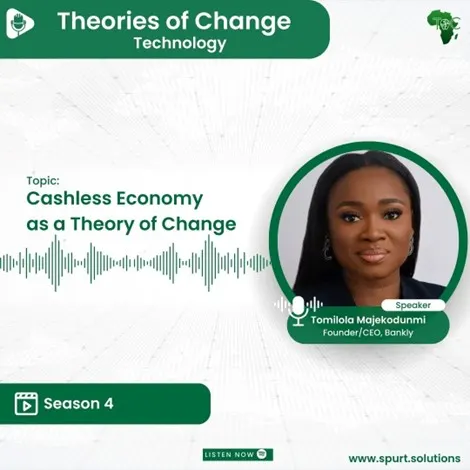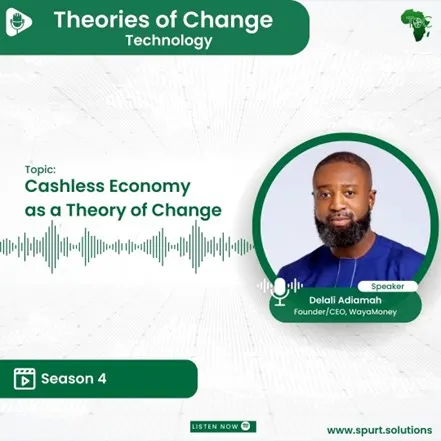The concept of a cashless economy is gaining traction as a powerful tool for bridging the financial inclusion gap in Africa. With digital banking at the forefront of this transformation, experts Tomilola and Delali offer valuable insights into the challenges and opportunities presented by this innovative shift. Tune in here to listen to the full conversation.
Understanding the Landscape: A Tale of Two Markets
Tomilola begins by highlighting the importance of understanding the diversity of African markets when discussing the impact of digital banking on financial inclusion. She emphasizes that the success of digital payment adoption largely depends on the type of market in question. In formal markets, digital payments are already a norm, with individuals accustomed to cashless transactions. However, in informal markets like Nigeria, where cash still dominates, the transition to digital requires a multi-tiered approach.
The Role of Financial Education and Trust
One of the key challenges in transitioning to a cashless economy is the lack of trust in digital payment methods, particularly in informal markets. Tomilola points out that financial education is vital in overcoming this hurdle. The informal sector needs to be educated about the benefits of digital banking and how it can provide greater security and convenience. Establishing trust within these communities is essential to encourage the acceptance of digital payment methods.

Three Pillars of Change
Tomilola's perspective on the transformative potential of digital banking is built on three pillars: access, fraud prevention, and data management. She argues that digital banking provides unprecedented access to funds, eliminating the need to physically retrieve money from distant locations. This newfound access empowers individuals with the ability to manage their finances seamlessly, regardless of their geographical location.
Moreover, Tomilola addresses the depth of fraud within traditional financial practices. With cash transactions, the risk of fraud and mismanagement is high. Individuals entrusted with collecting funds might abscond with the money, or unforeseen circumstances such as illness can disrupt the process. ”You know, when you realise that now have money that you've never dreamt of, which is not yours… you suddenly realise that you have 20 million but you've never had more than 500,000 your whole life, not realising that that 20 million is not yours, they lose control…” Digital banking mitigates these risks, offering a transparent and secure way to store and access funds.
Interested yet? There’s more where this came from. Join here to listen to more of this conversation.
Infrastructure: The Backbone of Cashless Economy Innovation
To fully realise the potential of digital banking and drive financial inclusion, the right infrastructure is paramount. Tomilola underscores the critical role of mobile telecommunications connectivity in supporting cashless economy initiatives. Whether through mobile devices or POS terminals, the success of digital payment systems hinges on the availability of robust and reliable telecommunication infrastructure.
Cautious African Consumer Landscape
Delali points out that the African consumer landscape is characterised by a deep-seated scepticism, making the transition to a cashless economy a gradual and cautious process. He specifically highlights the case of mobile money, a transformative innovation that took considerable time to gain acceptance across African countries like Ghana, Kenya, and Nigeria. The transition was not solely about understanding the technology; it also entailed building trust in the new system “We don't even have to understand the tech. We understand who you are, we would be more laid back”.

The Power of Referrals and Early Adopters
Delali introduces an effective strategy for encouraging adoption within skeptical populations: the power of referrals and early adopters. He explains that early adopters, who are typically more adventurous and open to change, play a pivotal role in paving the way for wider acceptance. These individuals start small, gradually increasing their engagement with the new cashless economy innovations. Their positive experiences and success stories serve as social proof, influencing others to follow suit “These are the guys who are even adventurous enough to start with. The ones who are not, would not even engage at all. Like, yeah, that's OK I can save in cash”.
The Road Ahead: Collaboration and Innovation
Tomilola's insights shed light on the transformative power of digital banking in Africa. However, she emphasises that realising this potential requires collaboration between stakeholders and continuous innovation. For the unbanked and underserved populations, digital banking offers a gateway to financial empowerment, economic growth, and improved quality of life.
As the continent moves towards an increasingly digital future, it's imperative for governments, financial institutions, and technology providers to work together to build the necessary infrastructure and foster an environment of trust.
In the intricate interplay between technology and society, insights shared in this episode serve as a roadmap for harnessing the potential of digital banking to uplift communities, reshape economies, and empower individuals across Africa.
For more insights on this conversation, listen here. Want to join the conversation? Follow us on our digital platforms @SpurtAfrica on X (Twitter), Spurt! On LinkedIn, and @SpurtAfrica on Instagram.





